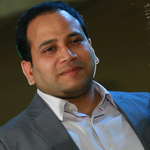Submissions are now open for the 2026 Adobe Experience Maker Awards.
Latest Articles
Adobe Journey Agent is now available in Adobe Journey Optimizer solutions
28
0
0
Views
Likes
Replies
Adobe Audience Agent is now available in Adobe Real-Time CDP and Adobe Journey Optimizer solutions
31
0
0
Views
Likes
Replies
The Wow Moment: Seeing Adobe Campaign’s Orchestrated Features Come Alive in Adobe Journey Optimizer
263
1
0
Views
Like
Replies
Demystifying Adobe Journey Optimizer Error Codes: Root Causes and Fixes (Part-2)
156
4
2
Views
Likes
Replies
Richer Data, Smarter Journeys : Why Dataset Lookup is the key to next-level personalization in AJO
290
5
0
Views
Likes
Replies
Breaking Down Barriers: How Adobe Journey Optimizer's Custom Delegation Feature Is Solving Enterprise Compliance Challenges
878
10
3
Views
Likes
Replies
LINE in AJO: From First Campaign to Advanced Expression Fragment & Custom Action Use Cases
635
3
0
Views
Likes
Replies
Personalization beyond the AJO Profile: Bringing non-Profile personalization into AJO email templates
623
2
0
Views
Likes
Replies
AJO Universal Link Integration Guide for iOS
933
3
1
Views
Likes
Replies
Take Flight with Personalization: How Airlines Can Elevate Offers with Adobe Journey Optimizer
1.0K
3
0
Views
Likes
Replies










